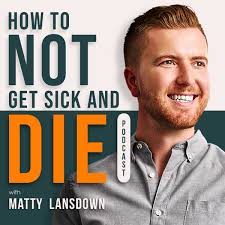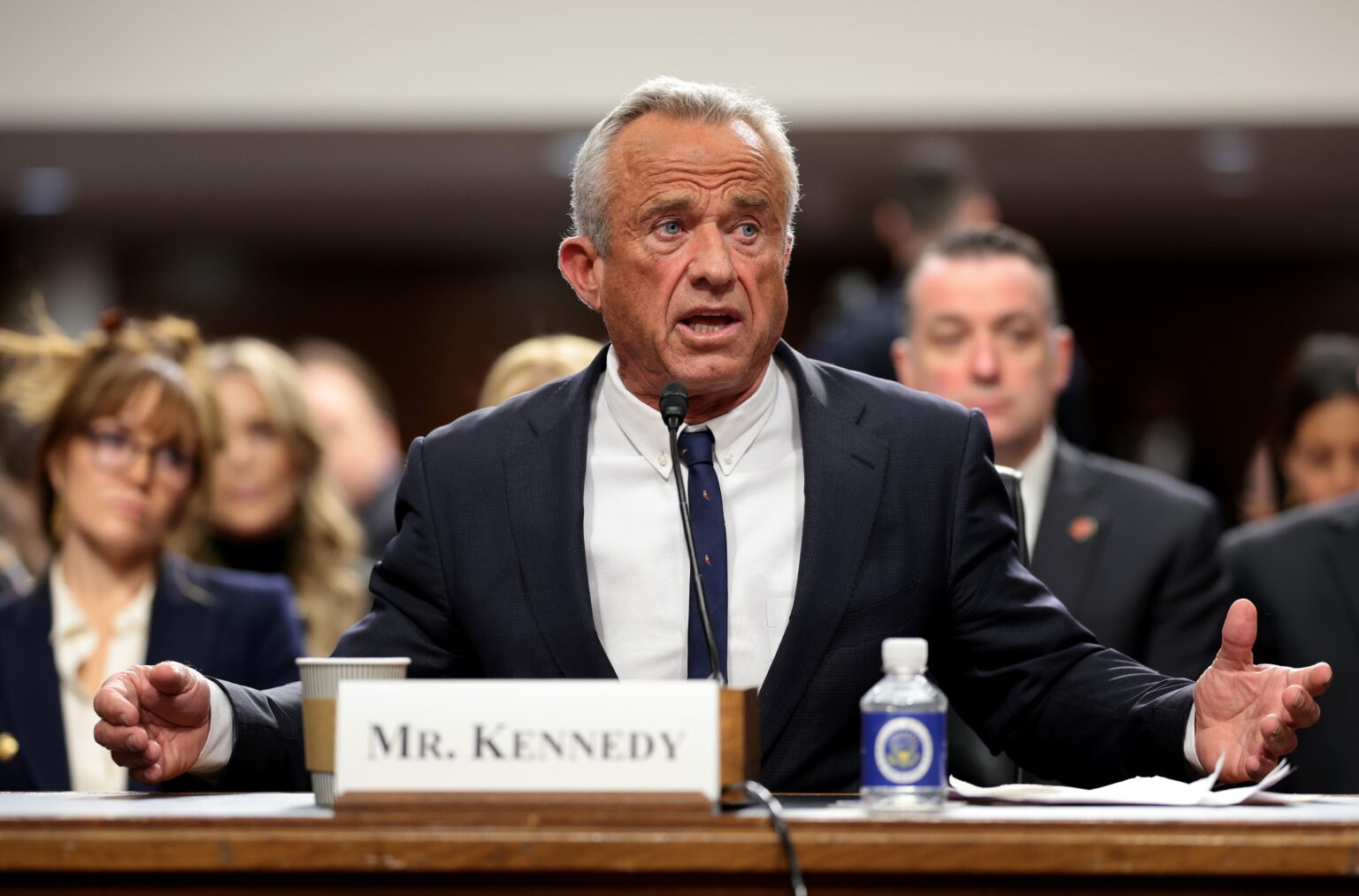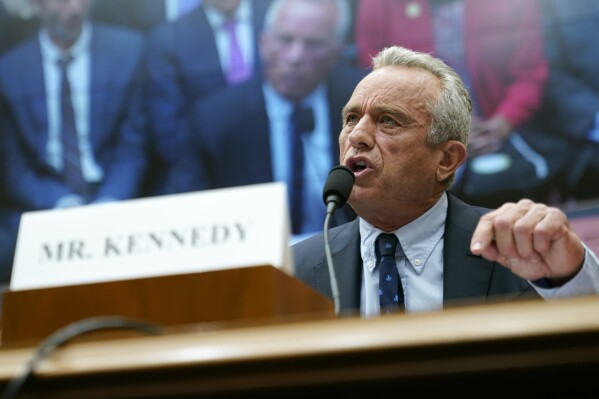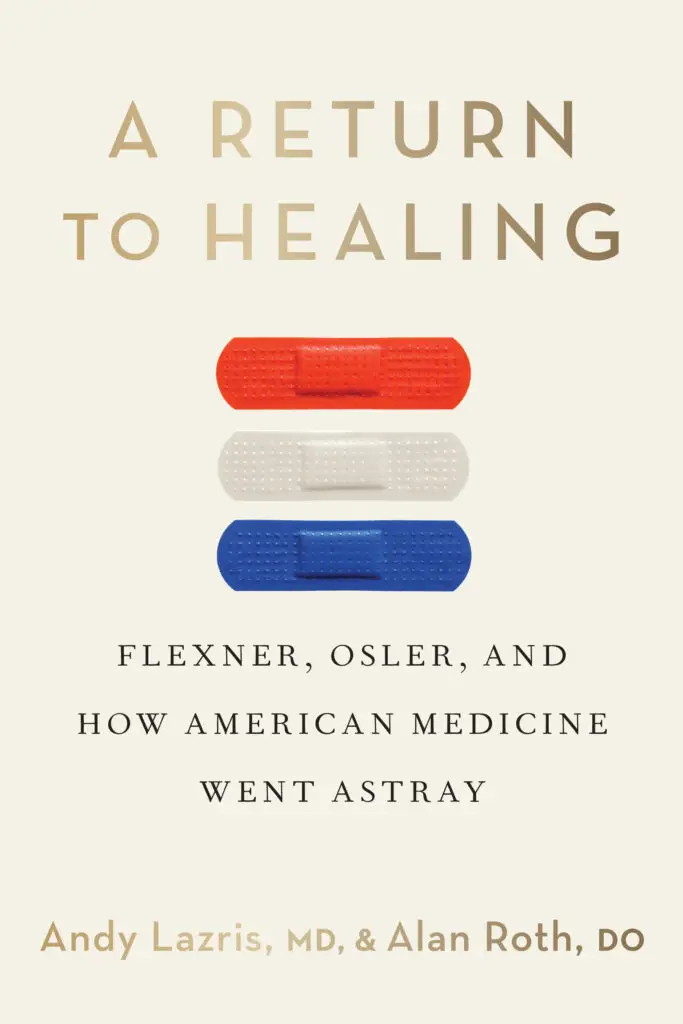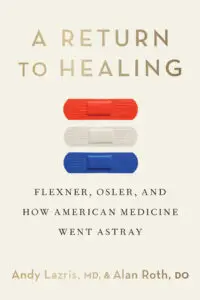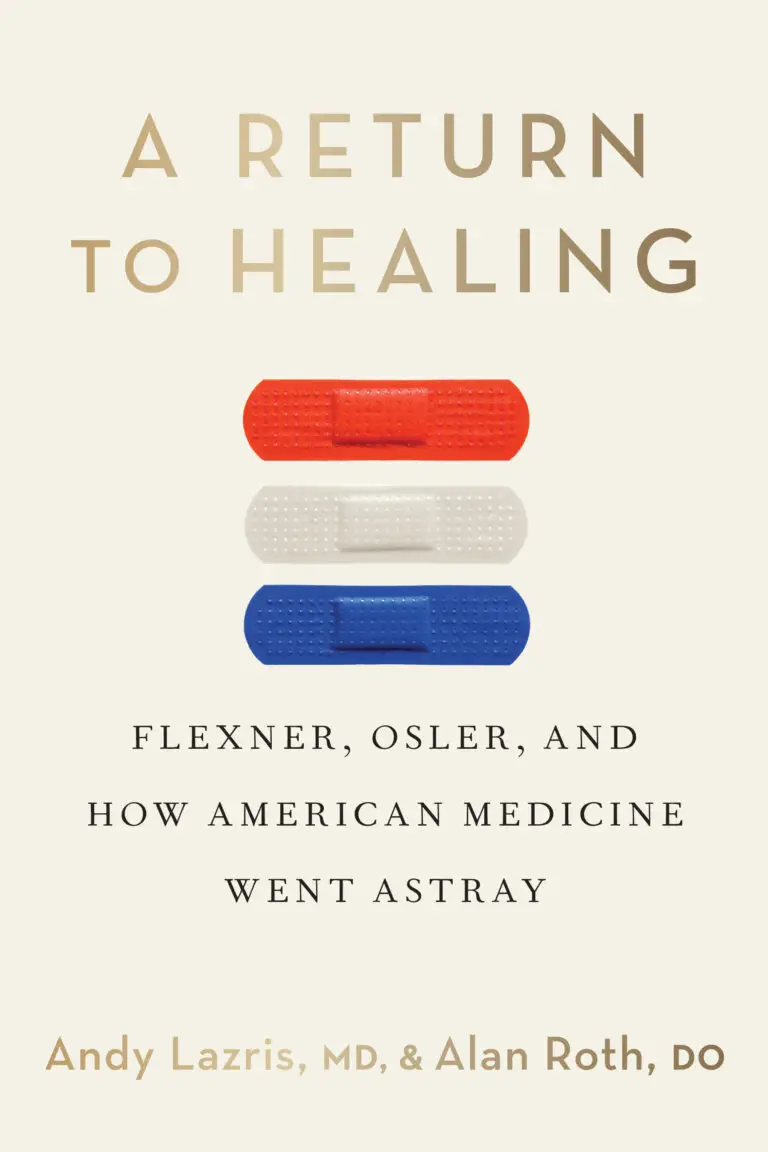American healthcare is at a breaking point–Costs are soaring, outcomes are declining, and patients often feel lost in a system built around profits—not people.
RFK Jr. and corporate medicine have become flashpoints in the debate over healthcare reform. As more Americans grow disillusioned with a system driven by profit, voices like Kennedy’s are forcing us to ask: Has medicine lost its soul?
In A Return to Healing, Dr. Andy Lazris and Dr. Alan Roth echo many of these concerns—calling for a return to patient-centered care, free from corporate control. Here’s how RFK Jr.’s vision aligns—and where A Return to Healing offers a deeper roadmap for change.
RFK Jr.’s Critique of Corporate Healthcare & the Rise of the Medical Industrial Complex
RFK Jr. has consistently challenged the role of corporate medicine in shaping healthcare policy and what he calls the “Medical Industrial Complex”—a system where corporate profits dictate patient care. He highlights major concerns, including:
- Pharmaceutical company influence over drug approvals and public health policy
- Insurance companies controlling medical decisions, not doctors
- Government capture by special interests that prioritize industry profits over individual health.
According to RFK Jr., these forces have turned healthcare into a business where human needs come second to financial interests.
How RFK Jr. Gets It Right (Partially)
In A Return to Healing, Dr. Lazris and Dr. Roth describe a strikingly similar landscape.
They argue that:
- Hospitals, insurance companies, and drug companies now dominate medical decision-making.
- Doctors are forced to meet quotas and follow rigid protocols, rather than treat patients as individuals.
- Patients are reduced to numbers, their care standardized by corporate mandates rather than personal needs.
Both RFK Jr. and the authors of A Return to Healing agree: Corporate influence has undermined the doctor-patient relationship—and true healing can’t thrive in a system driven by profits.
Where RFK Jr. Gets It Wrong (Partially)
While RFK Jr. often focuses heavily on pharmaceutical and vaccine policy, A Return to Healing takes a broader view of the problem—examining how corporate interests reshape every aspect of care, from primary care visits to chronic disease management to end-of-life decisions.
Rather than focusing on individual industries, Lazris and Roth advocate for systemic reform, suggesting the following:
- Longer visits based on listening and trust
- Reduced overuse of unnecessary tests and medications
- Empowering patients to be active, informed partners in their care
The goal isn’t just breaking up corporate monopolies—it’s reclaiming the soul of medicine itself.
How Corporate Medicine Changed the Doctor-Patient Relationship
In a healthcare system driven by corporate interests, the doctor-patient relationship has fundamentally shifted—and not for the better.
- Doctors became “providers,” pressured to hit productivity targets instead of building meaningful relationships.
- Patients became “consumers,” forced to navigate insurance networks, formularies, and authorization roadblocks.
- Appointments became shorter, rushed through standardized checklists designed for efficiency—not empathy.
Instead of working alongside patients to find personalized paths to healing, many physicians are now trapped in defensive medicine—overordering tests, following rigid treatment protocols, and drowning in administrative documentation to satisfy insurers and hospital administrators.
Trust—the foundation of real healing—has steadily eroded under the weight of a system that prioritizes profits over people.
The Ethical Conflict Between Healing and Profit
The corporate takeover of healthcare isn’t just an abstract problem—it’s causing real harm to both the people providing care and the people receiving it.
- Doctor burnout has reached crisis levels, as physicians are forced to prioritize paperwork, production quotas, and corporate mandates over patient care.
- Patients endure shorter, rushed appointments and are often subjected to unnecessary tests and treatments designed more to protect institutions than promote healing.
- Healthcare costs continue to skyrocket, even as outcomes stagnate—or worsen—for many Americans.
Critics of corporate medicine, including RFK Jr., argue that: A system built around billing codes instead of human connection cannot—and will not—heal.
Real-World Consequences of Corporate Healthcare
The corporate capture of medicine isn’t just a philosophical concern—it’s producing real, devastating harm across the healthcare system.
- Overdiagnosis: Unnecessary tests, procedures, and medications are often performed to boost profits, exposing patients to risks they don’t need.
- Rising costs: Administrative bloat and profit-driven decisions continue to push healthcare expenses to unsustainable levels.
- Doctor burnout: Physicians trapped in bureaucratic systems report soaring rates of emotional exhaustion, moral injury, and early career exits.
- Worsening outcomes: Despite record-breaking spending, core public health metrics—like life expectancy—have stalled or declined.
In the relentless race for profits, the human cost is staggering—and growing.
A Return to Healing: Rebuilding Healthcare from the Inside Out
In A Return to Healing, Dr. Andy Lazris and Dr. Alan Roth call for more than reform—they call for a return to medicine’s true purpose: healing people, not serving profits.
Their vision demands a fundamental realignment:
- Empower doctors to practice clinical judgment based on patients—not corporate protocols.
- Restore trust by putting personalized, patient-centered care at the core of every decision.
- Challenge the system by advocating for reforms that prioritize healing over billing codes.
Real healthcare reform doesn’t begin in boardrooms. It starts in exam rooms, in conversations built on listening, trust, and clinical intuition. It starts with courageous choices to put patients first—no matter the pressure from corporate systems.
The soul of medicine isn’t lost yet. But saving it will require bold resistance to the forces that profit from its decline.
Learn how we can rebuild a healthcare system that heals—not profits.
Explore A Return to Healing →
TL;DR: What Happens When Profit Replaces Healing?
Robert F. Kennedy Jr.’s outspoken views on healthcare have reignited conversations about the growing corporate grip on medicine. Whether or not you agree with his positions, one thing is clear: the healthcare system has shifted away from trust, autonomy, and compassion—and patients feel it.
In A Return to Healing, we examine how clinical care has become commercialized, and why restoring medicine’s soul means putting people before profit.
Watch the video below to explore what’s really at stake—and how we can begin to reclaim healthcare’s purpose. Subscribe to our YouTube channel for more conversations on restoring clarity, trust, and humanity in healthcare.

